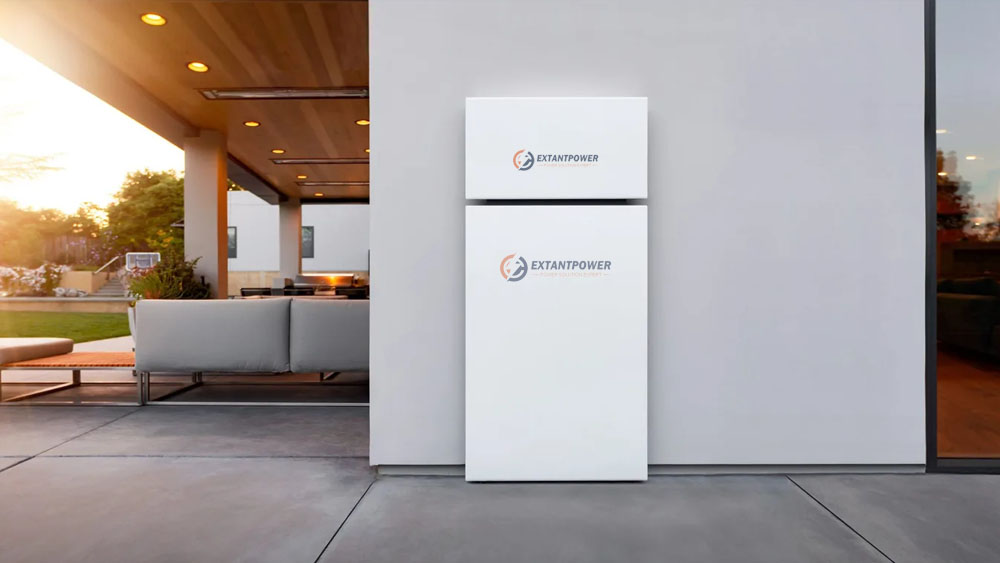
Home energy storage batteries have been on the market for many years with numerous varieties and sizes now available. Due to the rapid improvements in lithium cell technology, modern lithium battery systems quickly superseded traditional lead-acid batteries as manufacturers developed smart, modular systems to suit different energy storage applications.
Lithium batteries are smaller, lighter and (generally) cheaper than their lead-acid equivalents. Energy density is higher too, meaning they can store more power per unit weight or volume. They also have superior safety characteristics compared to their predecessors and last longer between charges.
The downside is that lithium batteries are more expensive than lead acid ones at present and require specialised charging equipment. However, these costs are expected to come down over time as production volumes increase and economies of scale kick in.
For home energy storage systems, there are two main types of lithium battery: Lithium Ion (LiIon), which tend to be used in small portable devices such as electric cars or phones; and Lithium Polymer (LiPo), which are used extensively in electric vehicles due to their high power density and relatively low cost per kilowatt hour (kWh).
Lithium-ion batteries
The best battery for a home energy storage system is lithium-ion.
Lithium-ion batteries are not only the most efficient, they also have the highest life cycle and can be recharged thousands of times before reaching a point where they need to be replaced.
This makes them ideal for storing excess energy generated by solar panels or wind turbines because you don’t want your battery to fail when it needs to supply energy back into your home during an outage or power outage caused by bad weather.
Redox flow batteries
When it comes to home energy storage, redox flow batteries are the best. They’re more expensive than other types of batteries and don’t scale up as well—but they’re also more efficient and can be scaled up to store more energy.
Lead-acid batteries
Lead-acid batteries are the cheapest option, but they’re also the heaviest and least efficient. They can last up to five years before they need replacing, but you’ll need a battery charger to keep them properly charged.
Lead-acid batteries have a long lifespan and are very durable (they will work even when partially discharged or fully discharged). They also have an impressive tolerance for heat or cold temperatures—ideal for places like Texas where it’s hot all year round!
Lead acid batteries can hold their charge for longer than other types of batteries so if you don’t use them regularly then this could be an advantage over other technologies such as lithium ion which lose their capacity over time without being used often enough.
Lithium sulphur
Lithium sulphur batteries are considered to be the most promising technology for home energy storage systems. They are among the best options due to their high safety, reliability and long life span. The lithium-sulphur batteries can also be charged to a very high voltage, which makes them ideal for large scale energy storage systems that require high power levels. Lithium-sulphur batteries are more expensive than other types of batteries but have lower operating costs when compared with lead acid and sodium sulfur batteries.
Nickel-cadmium
Nickel-cadmium batteries are not used much anymore, but they were the first type of rechargeable battery to be mass produced. They were popular for many years in the 1960s and ’70s, though today they’ve been replaced by other types of batteries with higher energy densities and lower costs to manufacture.
Nickel-cadmium batteries have a long lifespan, but they’re also expensive compared to newer technologies like lithium-ion batteries. The most common form of nickel-cadmium battery is a sealed lead acid battery—the same kind used in your car’s starter motor or in UPS systems (uninterruptible power supply).
If you have one of these old-school Nickel Cadmium units sitting around, don’t throw it away! You can recycle them through companies like Call2Recycle or Battery Solutions by following the instructions on their websites.
These are the best types of batteries for home energy storage.
Battery choice is the most important decision when it comes to choosing a home energy storage system. You can do almost anything with a battery, but you must make sure it’s compatible with your other components.
The most popular types of batteries for home energy storage systems are lithium-ion and redox flow batteries. Lithium-ion is the best option because it offers high performance and long life at reasonable costs, but redox flow batteries have lower costs per kilowatt-hour (kWh). Lead-acid batteries are not recommended for any type of large scale or stationary use because they have low efficiency and limited lifespan.
Conclusion
I hope this article has helped you make an informed decision about which battery type is best for your needs. If this is something that interests you but you’re not quite sure where to start, feel free to reach out and ask me any questions!
